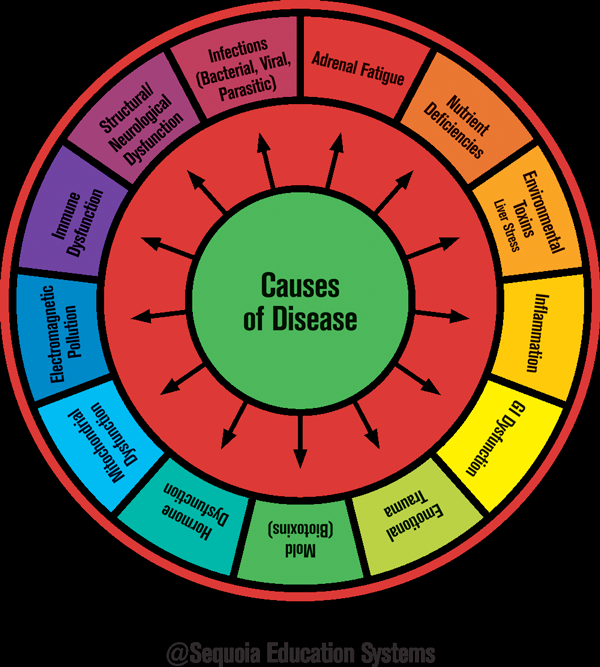What is Functional Medicine?
“The doctor of the future will give no medicine but will interest his patients in the care of the human frame, in diet and in the cause and prevention of disease.” Thomas Edison
Functional medicine is a holistic medicine discipline that works to identify and understand the underlying or root cause of symptoms and disease. It not only takes into account the lifestyle habits of a patient but also the fact that each person is unique. Each patient treatment plan is individualized based on the person’s unique anatomy, physiology and biochemistry. The patient is seen as a whole being – not just a set of symptoms or parts. Functional medicine treats the person, not their disease/condition.
The goals of Functional Medicine are:
- Prevention of a disease/dysfunction by examining and determining any potential risk factors that a person may have and then focusing on how to reduce, avoid or modify those risks.
- Early detection of disease or dysfunction through a thorough consultation and examination, as well as any additional testing (ie: labwork, hormonal testing) that may be needed to determine underlying issues.
- Addressing treatment recommendations that are specific for each person, with a focus on attaining a balance between all the different components that create optimal health. Areas to be included in this may be:
- Lifestyle changes
- Exercise
- Structural support (chiropractic, acupuncture, massage, etc)
- Diet
- Nutritional support (supplements)
- Stress reduction
- Other treatments such as homeopathics or essential oils
For example, if someone has Rheumatoid Arthritis, the Functional Medicine approach is to treat the person with Rheumatoid arthritis, not treat the Rheumatoid arthritis. The focus will be on what factors have caused the person to have an inflammatory condition, such as RA, and what can be done to address those underlying issues. A symptom or condition may be the same for different people but the cause of those symptoms may be very different for each person. The goal is to find out those answers and be able to develop a treatment plan specific for each patient.
It is about taking the time to listen to the patient, investigate and uncover underlying factors and then address those with the patient. It is a teamwork approach and the patient is given guidance and empowered with the tools to help themselves and allow their own body to function the way it is supposed to.
- The benefits of Functional Medicine include:
- Improved quality of healthcare due to focus on the person, not the disease
- Reduced overall health costs
- Reduced suffering
- Increased likelihood of an actual cure/resolution of disease or dysfunction
- Decreased incidence of premature aging, morbidity and mortality
The underlying cause of symptoms and disease can be one or any combination of the areas shown in the diagram. That is why getting to the root cause of the issues is so important. Two people with the same condition can have completely different underlying root causes.

